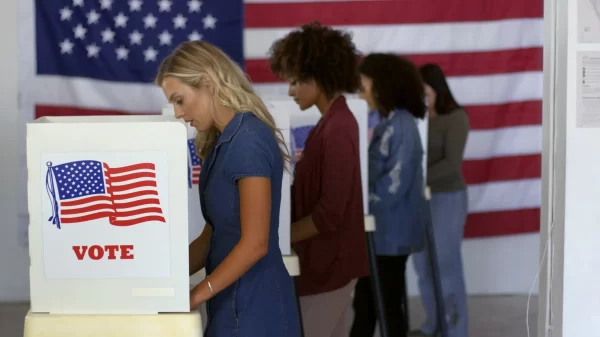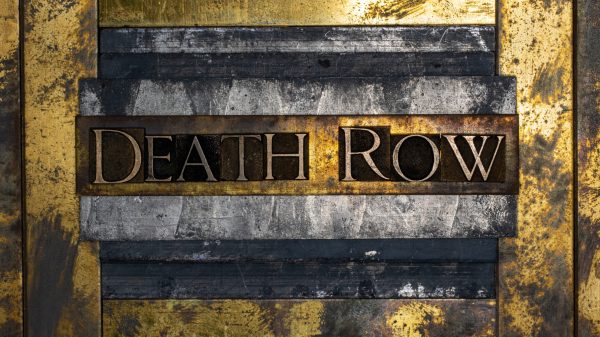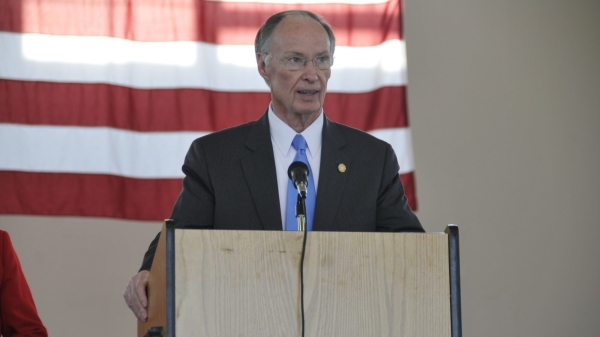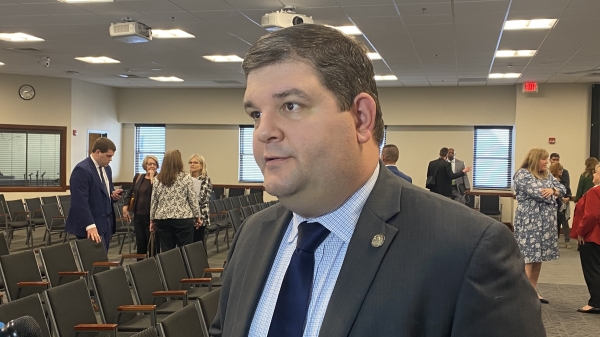By Chip Brownlee
Alabama Political Reporter
MONTGOMERY — As more information has come out from the Attorney General’s Office on the criminal investigation of Governor Robert Bentley, the House impeachment investigation has hit a brick wall.
In late February, newly appointed Special Attorney General Ellen Brooks, who is overseeing the criminal investigation of Bentley, sent a letter to the House Judiciary Committee asking them to review a 1933 case that could affect the relationship between the AGO’s criminal investigation and the House’s impeachment investigation.
A motion to pause public hearings and continue a private impeachment investigation of Bentley’s relationship with his former top political aide, Rebekah Mason, failed to pass the committee, leaving the House investigation in a holding pattern that began last fall.
In her letter, Brooks cited the 1933 Alabama Supreme Court case of State v. deGraffenried, which held that government officials impeached and removed under section 174 of the Alabama Constitution could not be tried again for criminal charges by criminal prosecutors.
The Court held that having two trials violated their rights preventing double jeopardy.
“I bring this case to your attention in an abundance of caution as the Committee determines its course of action,” Brooks wrote to the Committee on Feb. 24.
In the deGraffenried case, a Tuscaloosa County solicitor was acquitted for insurance fraud by a circuit court, but the Legislature then moved to impeach him, according to Othni Lathram, a legal expert with the Alabama Law Institute.
The Court held the solicitor could not be tried again because the impeachment, which they considered criminal, would have meant trying him twice for the same crime.
Resultingly, the Court then held that an impeachment proceeding in a circuit court, as they were held for lower offices, could bind the State of Alabama in a subsequent criminal proceeding, Brooks said.
She wanted to alert the Committee of the possibility.
“Although the Court has not considered whether an impeachment proceeding in the Legislature would have the same effect, such a proceeding could create a legal issue for the courts to resolve in any potential criminal proceeding,” Brooks wrote.
The House Judiciary Committee, charged with investigating Bentley, met on Tuesday for the first time since October 2016 to discuss the letter from Brooks and its possible implications.
Rep. Mike Jones (R-Andalusia) who chairs the Committee, seemed unconcerned about the case, saying he had reviewed it before and thought that it didn’t apply. He said he wanted to give the Committee the ultimate decision.
“We were aware of this case,” Jones said. “We frankly did not see this case of being of major significance because it applied to a different section of the Constitution than the one we’re using. … At the end of the day, I don’t think this would have caused us any problems, but I’m also respectful to someone who has been specially appointed to investigate this case.”
Gubernatorial impeachments are conducted under a different section of the Alabama Constitution, section 174, which was not reviewed in the deGraffenried case.
Rep. Chris England (R-Tuscaloosa) also didn’t think that double jeopardy would apply.
He likened the House investigation to that of a grand jury, which wouldn’t trigger jeopardy, but he also said the Legislature’s impeachment proceedings are not criminal in nature.
“I don’t think we need to lose sight of the fact that this is a political process,” England said.
While most of the members seemed to agree with England and Jones, the Committee meeting became about something else: Whether the Committee should continue its pause — triggered last year by a request from then-Attorney General Luther Strange — or allow its special counsel to continue his investigation.
Rep. Jim Hill (R-Moody) proposed a motion to do just that.
If it had passed, it would have continued the pause on public hearings but would have explicitly given special counsel Jack Sharman permission to continue investigating Bentley privately for possible impeachment.
The debate on the motion became contentious as members raised concerns over the possibility of triggering double jeopardy and others who reiterated old concerns over proper cause and standing.
“This is sloppy. This is very sloppy,” said Rep. Juandalynn Givan (D-Birmingham) who has been a critic of the effort to impeach Bentley from the start.
Givan, who voted yes on the motion to pause public hearings, said she was afraid that members of the Committee could be sued in their personal capacities for taking part in the investigation.
“This issue needs full clarity,” Givan said.
There were others yet, like Rep. Allen Farley (R-McCalla) and England, who said they wanted the investigation to continue but voted no on the motion. Farley said the two investigations should move on separate tracks.
Hill’s motion would have paused public hearings on a month-by-month basis to give Sharman and Jones time to deliberate over the possible implications of an impeachment investigation coinciding with a criminal one.
“I’m requesting you be purposeful, deliberate and educated,” Lathram advised the committee.
Farley, who voted no, wanted the Committee to move forward now.
“Looking at the letter, I would suggest that this group of individuals consider moving forward … and wish Ms. Brooks well,” Farley said. “We have waited on the AG’s Office all of this time. … We are ready to move forward.”
With the failure of Hill’s motion, no alternative was raised. Now the path forward is even more unclear.
“We’re pretty much where we were before this meeting started,” Jones said. “The last instructions from the Attorney General’s Office, before this letter on Feb. 24, were for us to pause. That’s still in place at this point.”
Jones said he would direct Sharman to remain in a holding pattern on the investigation.
“We’ve been on a steady pause, both on the investigative side and on the public hearing side,” Jones said. “The motion was to continue the pause on the public hearing side, which was one of the requests of the Attorney General’s Office, but to specifically give authority to the special counsel and for it to come from the entire committee.”
Jones said he had no timeline now, but he wants to have a status meeting with Brooks to see if there are matters Sharman could investigate without interfering with Brooks’ investigation.
Bentley, who was accused last year of maintaining an extramarital affair with Mason, and using State funds to do so, has denied any wrongdoing and said that his affair with Mason wasn’t physical.
He has called the House effort to impeach him “political grandstanding.”
Last month, Attorney General Steve Marshall officially recused himself from an active investigation of Bentley and decided to appoint Brooks, a former Montgomery County District Attorney, as a special attorney general to handle the case.
Attorneys from the Governor have criticized the impeachment hearings in the past. They have said the Governor should be afforded due process in the House by allowing his attorneys to interview witnesses and present their own evidence, which the Committee has been hesitant to do.
If the House votes to deliver impeachment articles, the Governor will be suspended immediately and will remain suspended unless he his acquitted in a Senate trial.
“In other words, impeachment would immediately throw out the votes of Alabama citizens,” said Ross Garber, an attorney for Bentley’s office. “This is not something that can be done without due process and very substantial evidence of serious wrongdoing.”
Email Chip Brownlee at [email protected] or follow him on Twitter.























































